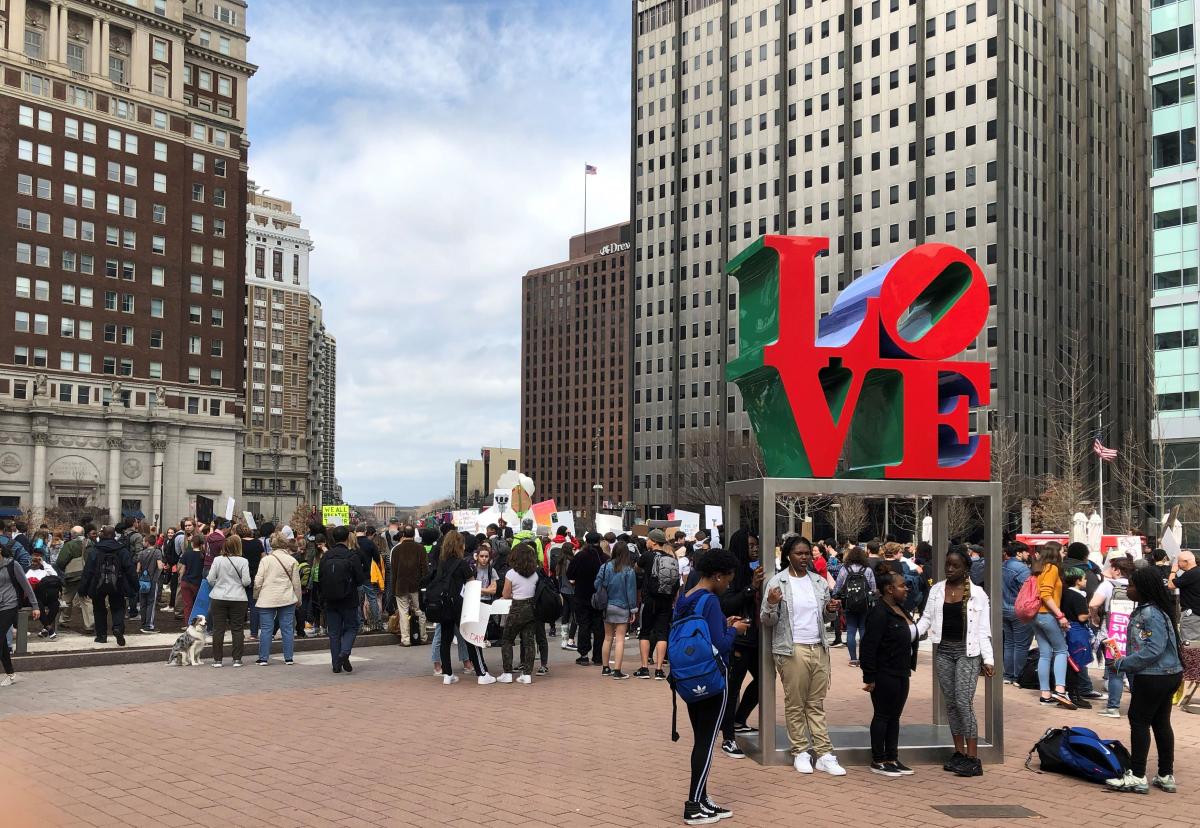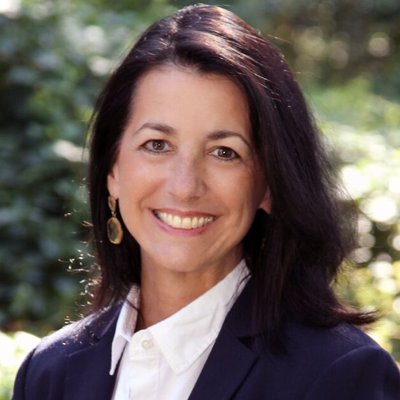
By Diane Cornman-Levy
As part of its ongoing efforts to foster a more equitable philanthropic sector, Philanthropy Network Greater Philadelphia partnered with the Women’s Funding Collaborative to host a discussion on gender transformative philanthropy on March 15, 2019. While many foundations are striving to take an intersectional approach to their work, the incorporation of a gender lens is often overlooked. Yet, our deeply entrenched gender norms shape every aspect of the work, from our internal structures to our grantmaking and investment strategies. These same rigid beliefs are also impacting the work of our grantees, which can unconsciously reinforce narrow ideals about masculinity and femininity.
In a room full of local and regional foundations, Riki Wilchins, the Executive Director of TrueChild, a network of researchers and experts that improves life outcomes for at-risk youth through race- and gender-responsive approaches, led an interactive and provocative discussion about the key terms, concepts, and findings behind “intersectional” approaches that connect race, class, and gender to improve equity and efficacy for funders and grantees.
Here are the four biggest takeaways from the session that will continue to drive the work of the philanthropic sector to build a more equitable and just region.
1. What are gender norms and why are they important to gender equity?
According Riki Wilchins, gender norms are socially-constructed ideals, scripts, and expectations for how to be a woman or a man. These norms shape individual’s thinking, behaviors and decisions and start to solidify between the ages of 9 and 14 years old, when young people are seeking to create their personal identities. They are widely accepted and because they are not really seen or talked about, it is challenging to understand and address them. For low-income environments, the norms may be especially narrow and rigid and are associated with harsh penalties for transgressing them.
“Gender norms were…as important as jobs and opportunity” in moving women and girls out of poverty.”
Researchers, including the World Bank, have been examining the relationship between gender norms and inequities different populations experience. Results have shown that when young women and men internalize narrow ideals for femininity and masculinity, they have markedly lower life outcomes in areas like basic wellness, reproductive health, educational achievement, and economic security. The World Bank spent two years interviewing 2,000 people in households of communities across dozens of countries. In analyzing their data, the Bank found that the common factor holding women and girls back was cultural gender norms. In fact, “gender norms were…as important as jobs and opportunity” in moving women and girls out of poverty.
2, Gender norms are not part of most funder’s frames and theories of change
The high rates of poverty among women and children in our region and across the country make it imperative for funders to seek out and support new and innovative pathways out of poverty. Yet funders often do not take new and innovative approaches to economic justice. More common theories of change for advancing economic security of women focus on initiatives that build skills and knowledge, create jobs, and improve education. All of these areas are important pieces of the puzzle, but according to Riki, women and girls are enmeshed in complex social networks and contexts that silently narrow and shape their day-to-day decisions, and reinforce gender inequities of power. Foundations are funding programs, but not the attitude change that makes the programs effective.
The good news is that gender norms can and do change.
The good news is that gender norms can and do change if we address and challenge them. The philanthropy sector can do this by adopting gender transformative funding, which invests in policies and programs that highlight, challenge, and ultimately try to change rigid gender norms and inequities they cause. Specifically, funders can incorporate an awareness and dismantling of rigid gender norms into their theories of change. When writing RFPs and vetting proposals, funders can include specific content that teaches women and girls to think critically about rigid gender norms. And funders can work to raise money targeted at programs that address gender norms.
3. The external work of promoting equity in the region requires funders to examine their own policies and practices
” Start by examining your own internal policies and how they currently address gender-based disparities and gender norms. Infuse gender into your work like you do with race.”
During the discussion, several participants asked what first steps could their foundations take to incorporate gender norms into the work of their grantees. Riki responded,” Start by examining your own internal policies and how they currently address gender-based disparities and gender norms. Infuse gender into your work like you do with race.”
This internal work can start with the executive directors, program managers, and board members of grantmaking organizations examining their own belief systems and ingrained attitudes that drive their behaviors, and understanding how they influence their grantmaking practices. Seulky McInneshin, Founder and CEO and Melody Keim, Lead Practitioner of FiveSpires, facilitated a reflective session during which the attendees engaged in examining the different influences of our lives and how they shape our identity, the lens through which we live and work, and the assumptions we bring to our work. The session ended with a call to continue this internal work with ourselves and our staff and board members.
4. Building a more equitable region requires a commitment to build local confidence, commitment and competencies
As members of the philanthropy sector learned more about the importance of gender norms on advancing gender equity, a rich discussion evolved on what steps the philanthropy sector can take to engage in gender transformative philanthropy. Below are some recommended next steps:
- Support an initial convening that brings together key stakeholders from the NGO, policy, and funding communities to share ideas, build consensus, and plan future action on eliminating negative gender stereotypes and feminine norms.
- Build local competence by training a group of grantees to engage in transformational gender norm work and become thought leaders in this area.
- Work with grantees to change their logic models so they incorporate dismantling gender norms.
- Create a collaborative funding group committed to infusing gender into our work like we do with race, and create metrics of where we want to be in three years.
In addition to taking these next steps, two groups are embarking on journeys to dive deeper into advancing equity in the region. Philanthropy Network Greater Philadelphia is launching its first Equity in Philanthropy Cohort in May. The 12-month cohort is designed to foster awareness, reflection, and institutional change among regional funders regarding structural and systemic barriers to equity, particularly as they pertain to race. Participating funders will build a universal understanding and language for this work and evolve their internal and external philanthropic practice toward a full commitment to equity.
For more information on the cohort, contact Sidney Hargro, President, Philanthropy Network Greater Philadelphia, at sidney@philanthropynetwork.org or 215-790-9700 x4.
The Women’s Funding Collaborative (WFC) is a newly-formed group of grantmaking organizations working together to promote the integration of a gender lens into the philanthropic sector. WFC’s goals are to build a gender transformative philanthropic culture by encouraging foundations to:
- Apply gender smart strategies to their grantmaking practices to ensure that the organizations and programs they fund are mindful of the outcomes and consequences of their programs as it relates to gender.
- Increase dollars towards programs that intentionally drive gender equity.
- Support the development of a dialogue around rigid gender norms among funders, grantees, and public policy makers.
- Adopt internal policies that better address gender-based disparities, including leadership diversity, equitable pay structures, and flexible work environments.
- Invest a portion of their endowment in alignment with their mission and through a gender lens.
For more information on the Women’s Funding Collaborative, please contact the New Century Trust at info@newcenturytrust.org or 215-519-5360.
 Diane Cornman-Levy is Executive Director of WOMEN’S WAY
Diane Cornman-Levy is Executive Director of WOMEN’S WAY
@DCornmanlevy
